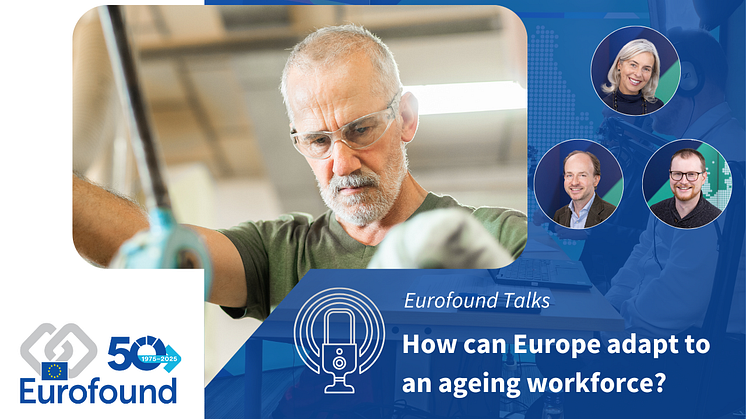
Press release -
New pan-European survey reveals stark inequalities in working conditions
Results from Eurofound’s pan-European flagship survey reveal significant improvements in job quality over the past decade but highlight stark inequalities between women and men, as well as radically different situations for workers in different parts of Europe.
The unique European Working Conditions Survey 2024 draws on interviews with over 36,000 workers across 35 countries, with data compiled and measured against seven job quality indicators. The just published First findings highlights several key issues:
- Long working weeks are becoming increasingly rare; the share of workers putting in over 48 hours per week has fallen from 19% to 11% since 2005. This trend has helped close the gender gap in the quality of working time, with men's scores on the Working time quality index- a composite measure developed by Eurofound to capture various aspects of how working time impacts a worker's well-being and work-life balance - finally catching up to women's in 2024.
- The physical environment has also seen an improvement since 2010, though men are benefitting at a faster rate. Workers are also reporting more opportunities to develop and apply their skills, with the Skills and discretion index showing the greatest improvement of all non-pecuniary domains.
- However, beneath these positive shifts persistent deep divides are apparent. While men's working environments are improving, women are experiencing a different reality.
- The Social environment index – an indicator to assess the quality of social relationships in the workplace - has deteriorated for women since 2010, while improving for men, due mainly towomen’s greater exposure to verbal abuse and other adverse social behaviours.
- The Work intensity index also shows an improvement for men but a worsening trend for women who are overrepresented in sectors like healthcare and education, marked by frequent interruptions and high emotional demands.
- Work in Europe is also more sedentary than ever before – an issue associated with various medical conditions including obesity, increased blood pressure, and unhealthy cholesterol levels. 40% of workers in Europe sit during prolonged periods throughout their working time. Another issue affecting women (42%) more than men (39%).
- The survey brings to light pervasive inequalities in job security and earnings predictability. Despite an overall decline in fear of job loss, a 6-percentage-point gender gap remains in career prospects, favouring men. Furthermore, 15% of workers cannot predict their earnings over the next three months. This uncertainty is particularly acute in certain countries, with more than a quarter of workers in Romania and Greece reporting they do not know how much they will earn in the coming three months, a stark contrast to the relative certainty seen in countries such as Austria and Germany.
The European Working Conditions Survey 2024 first findings confirm that while job quality in Europe is generally improving, the benefits are not reaching everyone equally. The analysis highlights that policymakers must look beyond the overall trends to address the specific vulnerabilities and inequalities that continue to define the working lives of many.
- Download the First findings: European Working Conditions Survey 2024
Further information
- Browse our digital story: Trends in job quality: EWCS 2024 first findings
- Explore the data: European Working Conditions Survey 2024
- Listen to our podcast: The evolution of working conditions in Europe




